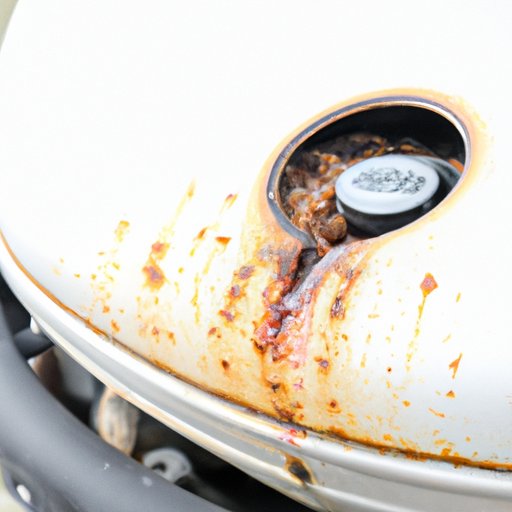
Introduction:
Have you ever heard someone mention that they “sugarized” someone’s gas tank to teach them a lesson? This act might seem harmless, but the truth is, it can cause serious damage to the car engine. In this article, we will explore the science behind sugar in a gas tank, and the real-life incidents that have happened as a result. We will also discuss the legal and financial implications of this act, and alternative solutions to seek revenge without harming someone’s property.
Science behind sugar in a gas tank:
Sugar in your gas tank is never a good idea. Gasoline is a hydrocarbon that requires oxygen to combust and power the engine. If sugar is added to the gasoline, it settles at the bottom of the tank and does not dissolve. When the car is started, the sugar is sucked up into the fuel system, where it clogs the fuel filter and fuel injectors. The buildup of sugar can also cause damage to the engine by creating hot spots that can cause parts of the engine to melt.
Real-life examples:
Intentional incidents of putting sugar in gas tanks have been reported for years. These incidents are done as revenge or a prank. In some cases, people have intentionally put sugar in the gas tanks of their enemies, while in others, it has been an innocent mistake. Either way, the consequences for the car owner can be devastating, with repairs potentially costing thousands of dollars.
One example is a case in New York, where a woman had her gas tank filled with sugar by an ex-lover. The owner spent over $3,000 on repairs, including a new fuel tank, fuel pump, and fuel filter. The ex-lover was later charged with criminal mischief and ordered to pay restitution.
Steps to take if sugar is suspected:
If you suspect that sugar has been put in your gas tank, you need to act quickly to prevent further damage to your engine. The following are steps you should take:
- Check for signs of sugar, such as a gritty substance in the fuel or a sweet smell.
- Shut off the engine immediately to prevent sugar from causing further damage.
- Disconnect the fuel line and drain the gas tank, including any debris caused by the sugar.
- Replace the fuel filter and any other damaged parts.
- Refill your gas tank with fresh gasoline and add a fuel system cleaner.
How to avoid falling victim to a prank:
Prevention is the best way to avoid falling victim to this prank. Here are some steps you can take:
- Park your car in a well-lit area or a garage.
- Lock your car doors and windows to prevent someone from accessing your car.
- Invest in a security camera system to monitor any suspicious activity around your car.
- Be wary of leaving your car unattended for long periods.
- Surprisingly, keeping your gas tank full can actually be helpful, as less empty space in the tank equals less room for sugar.
Legal and financial implications:
In many states, putting sugar in someone’s gas tank is considered criminal mischief, and perpetrators can face criminal charges. In addition to criminal charges, the perpetrator may be sued for damages. The financial consequences of sugar in a gas tank can be significant, with repairs costing anywhere from $500 to $5,000 or more depending on the extent of the damage.
Dispelling myths about sugar in a gas tank:
There are a couple of myths regarding sugar in gas tanks that need to be dispelled. Firstly, adding sugar to diesel fuel won’t cause any damage to the engine. Secondly, adding sand to someone’s gas tank may cause damage to the fuel filter or fuel injectors, but it won’t cause any lasting damage to the engine like sugar can.
Alternative solutions:
If you’re looking for a non-destructive way to seek revenge, there are a few suggestions worth mentioning. Firstly, consider talking directly with the person and working through your differences. Alternatively, you could explore legal action if the situation calls for it. Actively looking for a non-destructive way to seek revenge can better serve your purpose in the long run.
Conclusion:
Putting sugar in a gas tank might seem like a harmless prank, but the truth is, it can cause serious damage to the engine and be costly to repair. If you suspect sugar has been added to your gas tank, act quickly to prevent further damage. Preventive measures such as security cameras can help you avoid being a victim of the prank altogether. Remember that there are legal and financial consequences to this act, and alternative solutions to seek revenge without harming someone’s car.




